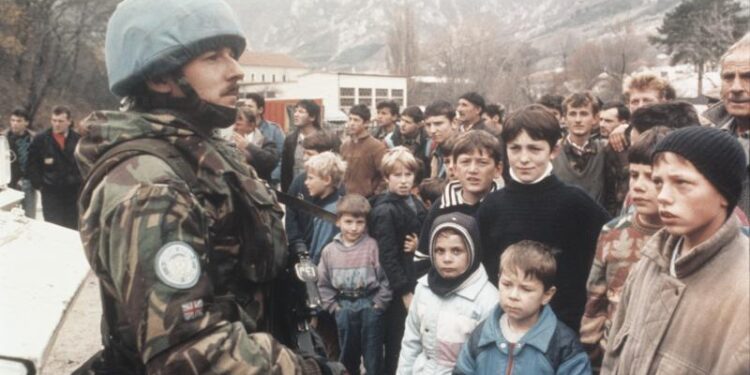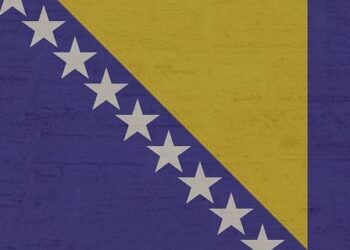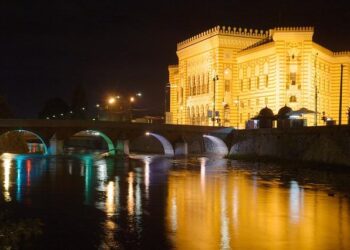Thirty years after the outbreak of the Bosnian War, tens of thousands of refugees remain unable to return to their homes, highlighting the enduring legacy of one of Europe’s most devastating conflicts. Despite international efforts and decades of peace agreements, displacement and ethnic divisions continue to impede reconciliation and resettlement across Bosnia and Herzegovina. This prolonged state of limbo underscores the complex challenges still facing the region, as survivors and their descendants struggle with the unresolved consequences of a war that shaped the course of modern Balkan history.
The Lingering Impact of Displacement on Bosnian Refugees Three Decades Later
More than 30 years after the Bosnian War tore through communities, countless refugees remain unable to return to their original homes. Many face persistent obstacles such as destroyed infrastructure, unresolved property disputes, and ethnic tensions that continue to prevent safe and sustainable resettlement. While international efforts have facilitated rebuilding in some areas, the psychological and social scars have yet to fully heal, leaving refugees in a state of prolonged limbo.
Key challenges faced by Bosnian refugees today include:
- Legal complexities around land ownership and property restitution
- Limited economic opportunities in war-affected regions
- Lingering ethnic divisions and mistrust within communities
- Inadequate support for mental health and trauma recovery
| Issue | Impact | Current Status |
|---|---|---|
| Property disputes | Prevent return and investment | Ongoing legal battles |
| Economic stagnation | Youth migration abroad | High unemployment rates |
| Ethnic tensions | Community fragmentation | Slow reconciliation process |
| Mental health | Generational trauma | Insufficient support services |
Challenges Preventing the Return of Refugees to Their Ancestral Homes
The aftermath of the Bosnian War still reverberates through the fabric of communities, where a complex web of political, social, and economic obstacles continues to hinder refugees from reclaiming their ancestral homes. One of the foremost hurdles is ethnic division entrenched by wartime atrocities, which has solidified mistrust and fear among local populations. Political fragmentation within Bosnia and Herzegovina, characterized by competing nationalist agendas, obstructs the implementation of effective return policies. Additionally, many homes were destroyed or seized during the conflict, leaving refugees to confront not only physical barriers but also legal battles over property restitution.
Beyond politics and property issues, there are significant challenges rooted in the slow pace of reconciliation and economic instability.
- Lack of infrastructure and basic services in war-affected areas deters returnees seeking sustainable living conditions.
- Psychological trauma and social alienation persist, as displaced individuals grapple with memories of violence and loss.
- Youth unemployment and limited educational opportunities incentivize refugee populations to establish new lives elsewhere rather than risk an uncertain future at home.
| Challenge | Impact | Current Status |
|---|---|---|
| Ethnic Tensions | Impedes trust and social cohesion | High |
| Property Disputes | Delays legal returns and reconstruction | Ongoing |
| Economic Instability | Limits livelihood prospects | Chronic |
| Infrastructure Deficits | Reduces habitability of return areas | Critical |
Policy Recommendations to Facilitate Safe and Dignified Resettlement in Post-War Bosnia
The road to a safe and dignified resettlement for displaced Bosnian refugees requires a multi-faceted approach grounded in legal, social, and economic reforms. Firstly, enhanced property restitution processes must be prioritized to resolve ongoing disputes, ensuring returnees can reclaim their homes without fear of bureaucratic delays or intimidation. Additionally, strengthening local governance through transparent, community-led initiatives will foster trust and create an inclusive environment for all ethnic groups, addressing the scars of post-war fragmentation.
Economic revitalization plans should accompany resettlement efforts, providing targeted support such as microloans and vocational training tailored to the specific needs of returnees. Furthermore, psychosocial services must be expanded to assist trauma-affected populations in rebuilding their lives with dignity. Below is a summary of key policy measures necessary to support successful resettlement:
- Streamlined Property Restitution: Establish fast-track legal aid clinics in affected municipalities.
- Inclusive Local Governance: Promote inter-ethnic councils with equal representation to oversee reconstruction projects.
- Economic Empowerment: Provide grants and job training programs tailored to returnees’ skills.
- Psychosocial Support: Increase access to mental health services, especially in rural return areas.
- Infrastructure Rehabilitation: Prioritize rebuilding schools, healthcare facilities, and essential utilities.
| Policy Focus | Primary Goal | Key Stakeholders |
|---|---|---|
| Property Restitution | Secure housing rights | Government, NGOs, Judiciary |
| Governance Inclusion | Rebuild social trust | Local authorities, Community groups |
| Economic Support | Ensure livelihood sustainability | International donors, Employment agencies |
| Psychosocial Care | Address trauma recovery | Healthcare providers, NGOs |
In Conclusion
Three decades after the Bosnian War, the unresolved plight of refugees underscores the enduring scars left by the conflict. Despite international efforts and peace agreements, the path to reconciliation and safe return remains fraught with political, social, and economic obstacles. As communities continue to grapple with displacement and the legacy of ethnic divisions, the promise of rebuilding a shared future in their ancestral homes remains a distant hope for many Bosnians. The international community’s sustained engagement will be crucial in addressing these challenges and supporting efforts toward durable peace and coexistence.













